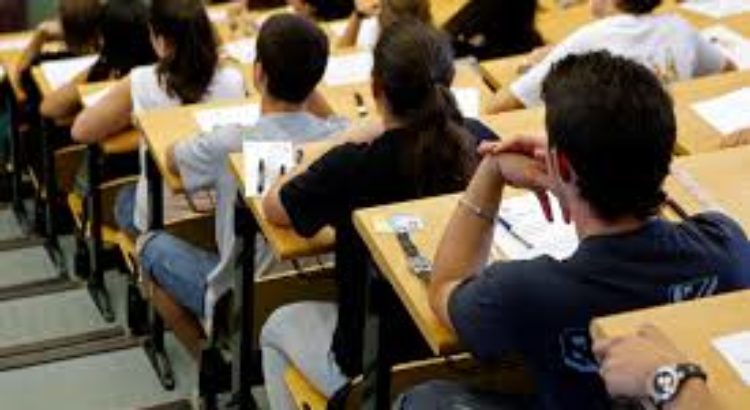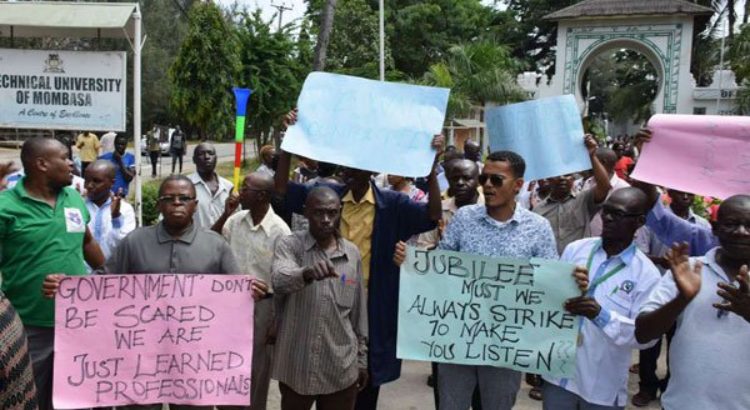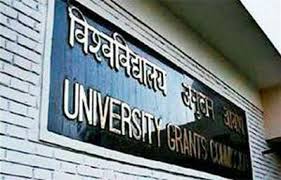“The so-called university campuses dotting villages seriously compromise quality.”
Only 15 per cent of the Kenya Certificate of Secondary Education candidate achieved the cut-off score last year.
The number is just enough for the slots in public universities, leaving private universities and income-generation streams in public universities without prospective students.
PRIVATE UNIVERSITIES
Professor Mumo Kisau, the chairman of the Kenya Association of Private Universities, was quoted last week saying that private institutions have suffered a reduction of between 30,000 and 40,000 students this year.
Only Jesus Christ can save most of the faith-based universities whose prospective students rarely meet the high standards the government has set for universities.
With dwindling enrolment numbers, it is hard for these universities to remain afloat.
In late January, the Ministry of Education shutdown Presbyterian University of East Africa because the university finances were allegedly not in order.
This left its over 1,000 students in limbo, but the institution has since gone to court to oppose the closure.
ACCOMMODATION
Lukenya University Vice-Chancellor Maurice N. Amutabi thinks something should be done about the numbers of those allowed to proceed with university education.
“We have more spaces and capacity than the number of students we admit.
«It would have been good to have at least 20 per cent joining university than the current 10 per cent of all KCSE candidates,” the professor of history, who has previously worked at Kisii University and Central Washington University in the United States, says.
No tangible solutions are expected soon. Just as they prefer to receive their medical care abroad because Kenyan healthcare is comatose, our senior government officials, including those in the presidency, the opposition, and the education ministry give the local education system a wide berth.
They enrol their children in elite universities in Europe, America, New Zealand, and Australia.
GRADUATES
The only investment the ruling elites have in local universities is to ensure these institutions don’t produce independent-minded graduates.
A systematically degraded education system ensures universities churn out masses of graduates that are easy to control ideologically and acquiesce to the neoliberal agenda of the ruling elites.
With corruption affecting every sphere of public services, public universities are starved of the money they need to produce graduates worth giving a second glance on the job market.
Education officials misappropriate the money set aside for research.
“Funding of public universities is tied to how the Ministry of Education is able to do its budget, which mostly caters for salaries. Much of the (money) allocated for research is ‘eaten’ by ministry officials” Prof Maloba Wekesa says.
“We need a constant fraction of the budget to get to the specific universities to support research.”
INCOME
Although in dire financial straits, the universities have not been terribly creative in fundraising.
“Kenyan university financial models have never taken into account programme costs or developed innovative ways to protect the institutions from financial disasters,” Prof Ishmael Munene of Northern Arizona University in the US, who has written widely on the problems facing universities in Africa, says.
The shallow economic base means that the universities cannot provide basic needs for their students and staff.
Prof Munene mentions alumni donations, endowment funds, strategic investments, and industry partnerships among the possible initiatives to raise money and diversify income sources.
“The government is encouraging universities to find alternative sources of funding, including entrepreneurship, without compromising their core mandate,” Prof Mwenda Ntarangwi, a respected academic and the CEO of the Commission for Higher Education, says.
His attempts to put in place quality assurance mechanisms will be a tall order, given the cynicism in the government structures.
Western universities frequently receive donations from philanthropists.
Buildings on campus and endowed chairs are named in honour of these donors.
Endowed chairs provide a bait to attract and retain the best brains around.
However, except maybe the industrialist Manu Chandaria, rich people in Kenya cannot be expected to come to a university’s aid with donations to boost teaching and research.
CORRUPTION
The interest of the country’s rich class is primitive accumulation of stolen wealth, following a familiar script: run down one parastatal after another by stealing their assets, then take to Twitter daily to share with the nation inspirational quotes on how to get rich.
Experts think the universities should specialise in the areas they are strongest in.
At the moment, the universities duplicate one another, imitating the University of Nairobi, and offering unviable courses.
Professional bodies have rejected degrees from several public universities.
For example, the Engineers Board of Kenya has previously blacklisted engineers trained at Jaramogi Oginga Odinga University of Science and Technology, Meru University of Science and Technology, South Eastern Kenya University (Seku), Technical University of Kenya, and University of Eldoret.
“What we need is a differentiation of institutions with some specialising in good teaching, others in excellent research, and still others providing education midway between research and teaching,” Prof Munene says.
SALARY
He sees in Kenyan universities outdated pedagogical practices that discourage critical thinking; weak doctoral courses that duplicate work done at the undergraduate level; poor governance structures; and the absence of strategic planning as the other challenges facing Kenyan universities.
With low pay, university academic staff resort to moonlighting to make ends meet.
There is hardly any time to prepare for classes, and they end up giving students yellow notes. Cases of missing marks are common across all universities.
Without any clearly laid down ethical standards, universities watch as professors sexually abuse their hapless students for good grades. Rarely are sexual predators on campus punished.
The systematic degrading of education to serve the ruling class has been effective.
Now Kenyan universities value mediocrity above anything else. Professors are hired on the basis of their ethnicity, and top brains are edged out to teach in South Africa, Europe or America.
The lack of basic management skills are the bane of university administration, and woe unto you if you expect a university administrator to respond to your enquiries on anything.
“You will not get feedback from them because they don’t know the importance of feedback and research,” Prof Amutabi says.
“The university fat cats are too busy to answer calls or emails.”
Ethnocentrism is the order of the day on campus. “Some people think universities belong to them because they bear their ethnic name or are located in their counties,” Prof Amutabi says.
On September 2016, Uasin Gishu Governor Jackson Mandagoled demonstrations to demand the sacking of the Moi University vice-chancellor on the basis that he did not come from the dominant ethnic community around the university.
The students have also responded well to the unrelenting assault on higher education.
Congratulations! Even those born in the city and cannot say “good morning” in their mother tongues are as tribalistic as their grandparents in the rural backwaters.
Their response to political crises is based purely on tribe, usually to secure power for their ethnic tin gods.
LEADERS
Like the rest of Kenya, the students choose their leaders on the basis of how much the candidate can drink, smoke illicit substances, and steal from the public coffers.
Unlike in the 1970s, when student leaders practised selfless ideals, their counterparts today are protégés of the corrupt national leadership, whom they eventually join at the national level to continue the vicious circle of degrading universities.
The few student leaders who don’t play ball are shot in cold blood in potato farms — left to die like the universities whose interests they agitate for.
evanmwangi@gmail.com Twitter: @evanmwangi
Source:
https://www.nation.co.ke/news/education/How-our-university-education-system-went-terribly-wrong/2643604-4336630-cj92ug/index.html











 Users Today : 39
Users Today : 39 Total Users : 35460302
Total Users : 35460302 Views Today : 58
Views Today : 58 Total views : 3419026
Total views : 3419026